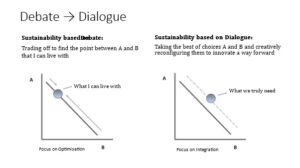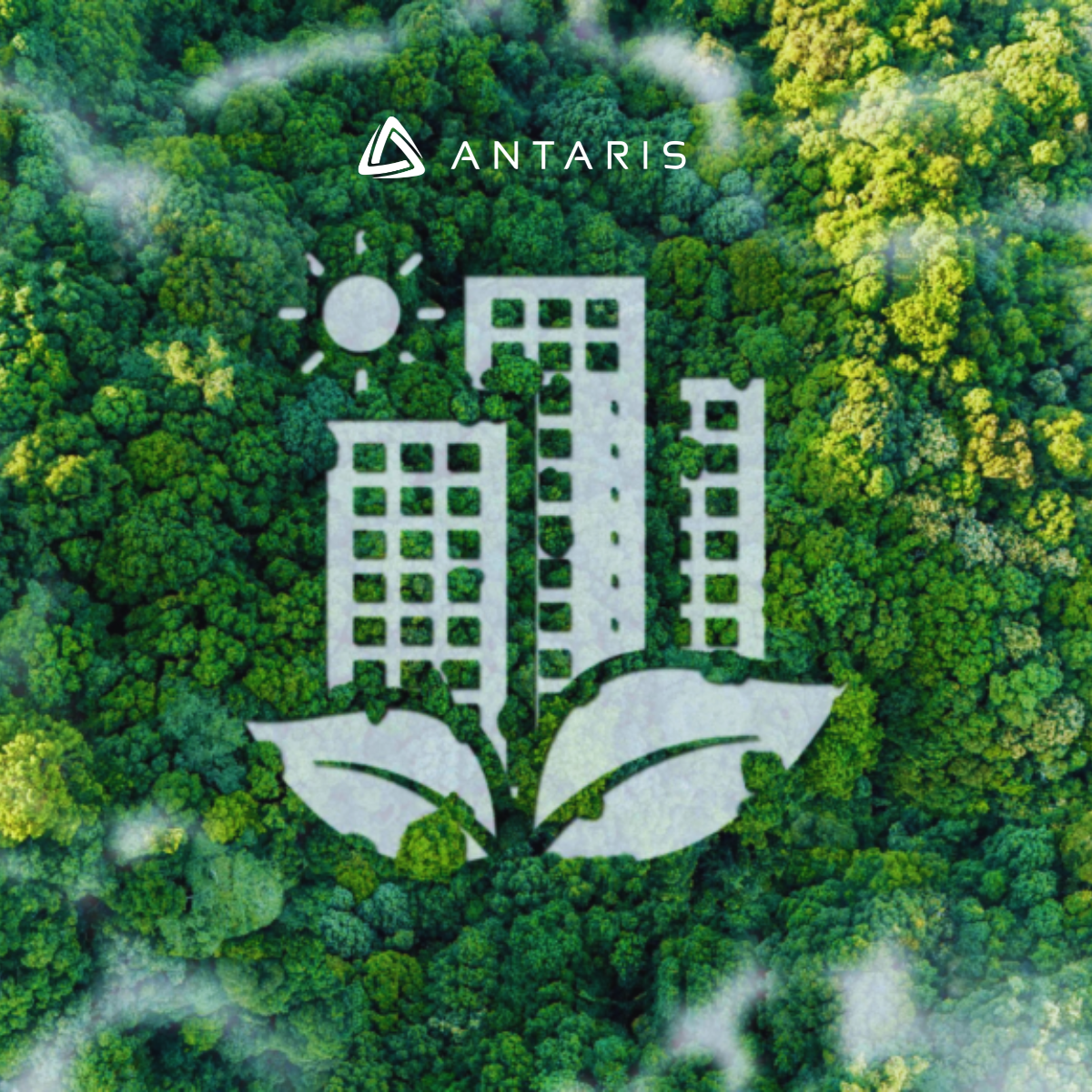As the latest IPCC climate report (issued 28th February 2022) makes clear, we are increasingly vulnerable to the impacts of a rapidly changing physical environment. Add to this post-pandemic adjustment and a volatile and currently tragic geopolitical context and we see that the space for certainty is rapidly diminishing.
This is the context in which organisations are required to develop a sustainability strategy, operationalise that strategy and report on it.
How do you strategise in a context of extreme uncertainty?
The era of traditional strategic planning, where we believed we could create the future according to our preference is over. In this previous era, we saw strategy as a project that received focused attention from an elite group (mostly middle-aged men) every few years and then left to rest on a shelf as reality unfolded in accordance with the strategy.
That world finished some time ago. In this current era, treating strategy as a time-bound project worked on by an elite few, does not work. Instead, strategy be it for either corporate or sustainability purposes (both must align) must be underpinned by a broad-based and iterative process of experiential learning and engagement.
We believe that organisations that master the strategy process will thrive because they will have the adaptive capacity to respond with insight to what fate throws their way. Those that do not master the process, will have luck to rely upon. Luck is not enough to satisfy investors or other discerning stakeholders.
An effective sustainability strategy process is based on curiosity rather than an insistence on “right” answers and learning rather than controlling. In a ‘sustainable organisation,’ there isn’t a victorious conclusion, rather strategy is a commitment to disciplined practice.
In this article, we identify five disciplines that organisations must practice to bring their sustainability strategy to reality.
Discipline #1 of 5 – Personal Mastery
Peter Senge1 defines personal mastery as operating from a creative as opposed to a reactive viewpoint. It is a discipline of continually focusing and refocusing on what you truly need and using the tension between your current reality and what you need as a source of creative energy.
Organisations that want to foster a culture of personal mastery will not succeed by rolling out compulsory training programmes.
Organisations can create a culture of personal mastery by making it safe for their people to have an alternative vision, where commitment to embracing truth and reality is the norm and where challenging the status quo is expected.
The core leadership strategy is simple: be a model. Commit yourself to your own personal mastery.
Discipline #2 of 5 – Mental Models
Insights about sustainability fail to get put into practice when they conflict with deeply held mental models of how their world works. In the grip of such mental models, organisations are limited to familiar ways of acting and thinking.
Mental models are powerful when they are so deeply embedded in the organisational culture that individuals are unaware of them. It is impossible to get to grips with something that has you in its grip. Examples abound in the context of demanding a strong business case for sustainability actions in a reality where there is no business without sustainability.
The first step in understanding mental models is to see everything as an assumption. There are no “truths”!
Today “linear thinking” dominates most mental models and decision-making. Sustainable organisations are more “circular” not just in terms of their business model, but also in their psychology.
They craft their decisions based on shared understandings of interrelationships and associated patterns of change.
Discipline #3 of 5 – Building shared purpose
It is difficult to name an organisation that has sustained outstanding performance, where goals, vision, and purpose were not deeply shared throughout the organisation.
A purpose is shared when you and I have a similar picture of the future and we are committed to each other’s progress towards it. A shared purpose is vital for a sustainable organisation because it provides the focus and energy for action towards greater sustainability.
Purpose is a familiar organisational concept. But when you look closely most purpose statements are imposed on the organisation by a person or the senior team. At best such purpose statements will command compliance. They will not command commitment.
The purpose development process is one of participative inquiry. It is key to strategic planning and materiality assessment. It requires accessing stakeholders’ desire for connection to something higher than the traditional economic measures of success.
Shared purpose becomes a vibrant force toward sustainability when people believe they can shape their own future.
Discipline #4 of 5 – Team Learning
The fundamental characteristic of the unaligned team is wasted energy. When teams are aligned and learning together they produce extraordinary results.
The discipline of team learning involves mastering the separate practices of debate and dialogue.
In dialogue, complex issues are explored, and there is deep listening and a suspension of judgment. In debate, alternative views are promoted and defended in the search for the most acceptable view so that a decision can be made. Most teams are unaware of whether they are in a debate or in dialogue.
Dialogue is “yes-and”. Debate is “no-but”. Dialogue seeks a picture larger than any individual’s view. Debate seeks to coerce a consensus. Integrating the skills of dialogue with debate allows you to hold a position, without being held by the position.
Figure 1: Making better decisions for sustainability [Adapted from Eiel, J and Martin, R. (2017)]
Without skilled facilitation, the deeply ingrained habit of win-lose debate is likely to pull you away from dialogue. The facilitators’ role is to hold the context where positions and assumptions can be suspended.
Discipline #5 of 5 – Systems Thinking
Systems thinking is the means for integrating the other four sustainability disciplines.
We tend to think of organisations as being more like machines than systems. We speak of “running the organisation”, “owners of the business” and leaders who “drive change”. The language is appropriate for a tractor.
This is problematic when people are involved. If you try to “drive” your partner or your children – your force will be met with at least an equal and opposite resistance. It is the same with organisations.
Learning faster than the pace of change is essential to organisational sustainability and thriving. That can no longer be done through traditional top-down approaches. Equally, sustainability needs some structure and method to avoid total chaos.
Nature points towards basic methods that work such as sensing patterns, recombining ideas into a “mutation” and being open to feedback. Systems mapping, pattern analysis, experimentation, collaboration, and dialogue are their organisational equivalents.
Systems thinking enables us to see patterns more clearly so that we can “learn how to learn”, to transform the system, and move towards sustainability.
Antaris Consulting is committed to helping organisations amplify their positive impact on the environment and society. Contact us to for an informal conversation on your organisation’s sustainability strategy needs.
References:
1 Senge, P. (2006) The Fifth Discipline The Art and Practice of the Learning Organisation Crown Publishing, NY
2 Riel, J., Martin, R. (2017) Creating Great Choices: A Leaders Guide to Integrative Thinking Harvard Business School Publishing



